Education
Dr Ken Gnanakan: The Time is Now for Integrated Learning
An integrated course is one that is organized in such a way that it cuts across subject-matter lines, bringing together various aspects of the particular subject in interaction with other areas of study in order to achieve the stated objectives and outcomes of the program.
Published
4 years agoon
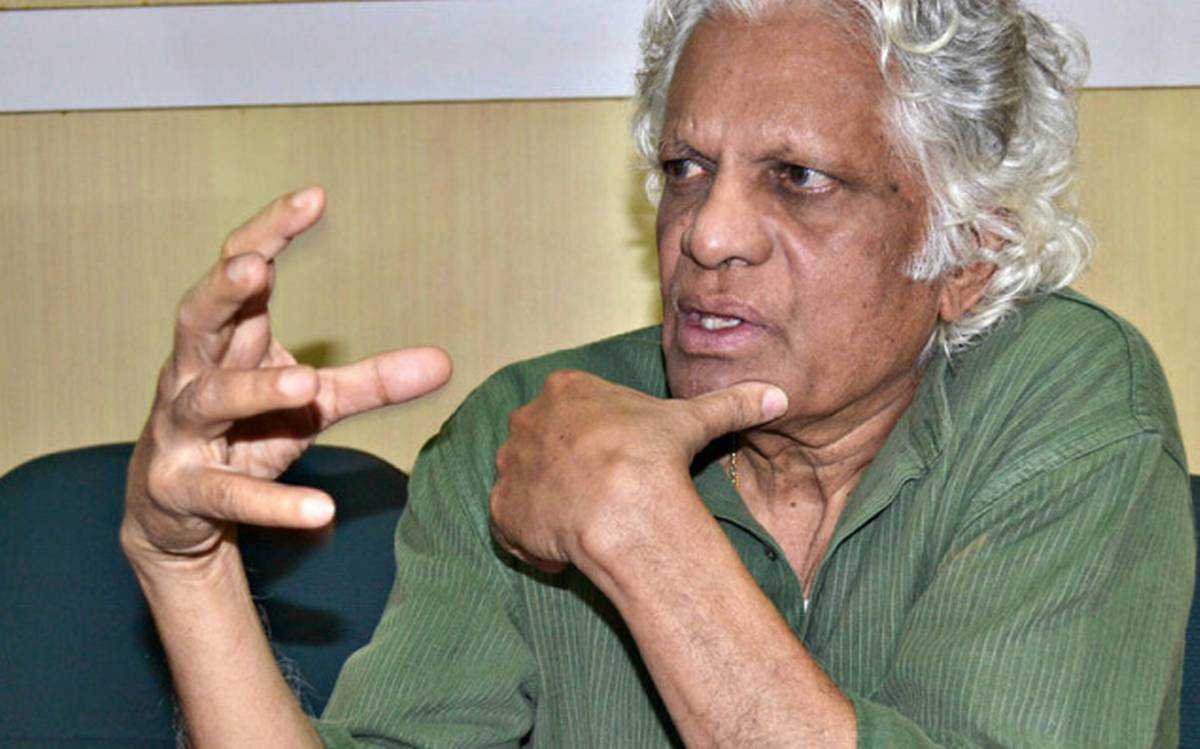
With the pressures on education in our current context, some very serious rethinking is called for. Questions are already being asked about schooling and the classroom, and the changes are needed. The traditional system of education is being criticised and huge changes are being considered. Why? We have become used to fragmented and disintegrated learning models of education with subjects studied in unrelated silos. Integration is the need of the hour.
Early Asian educational methods were naturally integrated models drawn from real life. Even when formal learning forms were employed, these traditional systems had clear objectives which followed a particular path. Traditions had to be preserved, harmony in the community was to be sustained or religious practices were to be observed and passed on to the next generation. Skills were developed. The Gurukul system, before the arrival of British rule, served as South Asia's primary educational system of imparting education to younger generations. Confucius and the noble goal of raising responsible citizens are still revered. These were integrated systems concerned about real life.
Some background influences
Let’s delve deeper into the background factors that could help reshape education making it more integrated. The first in my vocabulary is the word 'integration' itself. The word comes from the Latin 'integer,' meaning whole or entire. It has become an integral part of conversations at various levels and disciplines within education. No longer do professionals approach problems from a narrow micro perspective. Psychologists and psychiatrists treat the personality as being closely bound together as a whole. Integrated approaches have become the basis for treating various human disorders.
Even ecologists will argue that deforestation, population, pollution and a host of other factors over centuries are all contributing in an interconnected manner to the crisis we face at present. Our environment needs to be studied as a whole. The recent COVID pandemic has shown us even further the integrated world we live in, how every part of our world, as well as we as individuals, operate in an integrated way. These realities need to, therefore, impact our learning.
Integration leads us to another word – 'holism.' This is basically the relation between the parts and the whole. The understanding of the whole and parts has been around ever since the Greek philosopher Aristotle, but the concept has been revived widely in recent times. The great philosopher defined it as "The whole is more than the sums of its parts." The term is derived from the Greek word 'holos' meaning whole. The Oxford English Dictionary defines holism as “[the] tendency in nature to form wholes that are more than the sum of the parts by ordered grouping.” The theory emphasizes both the whole and the interdependence of its parts.
And then, a third is the concept of 'synergy' from the Greek 'synergia,' meaning joint or cooperative action. Synergy must be understood in relationship to holism, in that combined forces produce much more than individual efforts. Synergy can refer to both students as well as teachers working together and discovering that there is greater effectiveness in fulfilling our learning goals and outcomes together.
If all we needed was to produce pure engineers, doctors, community workers or social activists, then specialized isolated programs would be appropriate. However, in the present context where even the relevance of a traditional three-year degree is being questioned, we need professionals with integrated holistic perspectives plus skills. Teachers and departments must interact frequently to establish connections and explore real-world applications. Energies must operate together.
What then is Integrated Learning?
First, let us note that children are capable of learning the things that they need to know as long as they have the right environment. It was Maria Montessori, an Italian educator, who first demonstrated this. Her bold claim was that children learn more directly from their own environment and relatively little from listening to a teacher talking to a class! This led to the Montessori education method which is characterized by self-directed activity on the part of the child with a close observation from the teacher.
The second area of Integrated Learning is the integration of theoretical knowledge and concepts to real life. Here, we must carefully look at the content that our students are required to learn. Most of this tends to be conceptual learning; however, such concepts are not only learned better but remembered longer, when they are related to real contexts. Most teachers will have used Bloom's taxonomy, the set of three hierarchical models used to classify educational learning objectives. These were the cognitive, affective and psychomotor domains. It was holistic, but unfortunately, our systems only concentrate on the cognitive. 1
The third area of integration is for learning to be related to the particular gift of the learner. Not all of us grasp concepts, and similarly, not all of us enjoy accumulating facts and figures. The Theory of Multiple Intelligences proposed by psychologist Howard Gardner pointed out that each individual possesses varying levels of different intelligences. He originally identified seven core intelligence: linguistic, logical-mathematical, spatial, bodily-kinesthetic, musical, interpersonal, intrapersonal. In 1999, he added naturalistic as the eighth intelligence. The theory first appeared in Gardner’s book, “Frames of Mind: The Theory of Multiple Intelligences”. 2
The fourth area of integration is the relation of one area of learning with another, helping break down the walls we build in our artificially segregated curriculum. Students will learn better if he/she connects what is learned within one particular situation or discipline to another. There are some obvious natural connections, while others can be created. For instance, one may be learning Geography with natural references to mathematics, biology, language etc. and seeing this could enhance learning appreciably.
Fifthly, considering on-line learning, integration must employ various modes of educational deliveries. Such modes may transcend the classroom for total learning to take place. We have erroneously confined the learning experience to monologues in classrooms and in doing so have focused solely on the teacher as the giver/conveyor and the student as the receiver/container. Learning is much more complex and may take root in a variety of environments. All kinds of formal and informal, campus and off-campus, on-line and off-line methods must be utilized to fully maximize an Integrated Learning process.
Where do we start?
We must start with the actual content matter of our teaching – curriculum and syllabuses. Let’s look at the definition of an integrated course which will reflect this holistic approach we are advocating:
An integrated course is one that is organized in such a way that it cuts across subject-matter lines, bringing together various aspects of the particular subject in interaction with other areas of study in order to achieve the stated objectives and outcomes of the program. It views learning and teaching in a holistic way and reflects on issues in the real world making courses meaningful within their particular as well as wider contexts. 3
Integrated courses will, therefore, be cross-curricular and curriculum-interrelated. Experts see outcomes become far more observable and therefore more accurately measured. As we develop on-line models of teaching, we must deliberately seek to integrate multi-modes, cut across subject barriers, and navigate the child’s mind into real learning rather than the theoretical or cognitive inputs we continue to stress.
True Value of Education restored
Integrated learning is bringing new life into the meaningless routines of many educationists. This must be expected, as learning is discovering its place in real life, rather than only terminal value in the completion certificate at the end of the course. Students must be trained to see every bit of learning as relevant to their life and service. It will take into account all the experiences we encounter in our COVID-stricken world.
Online education has further underlined the need for integration in our whole approach to learning, making us employ more active rather than passive forms of learning. Active Learning is an instructional approach that actively engages students in learning through an integrated set of activities – videos, writing assignments, group discussion, reflection activities, and any other task that promotes problem-solving and critical thinking about the subject. 4 In contrast to the traditional form of education, where information was merely transmitted to students, active learning makes sure it is applied and used productively.
The curriculum must certainly change to educate children to fit into our current context. The content of skills and knowledge we share with students must be integrated into the learner’s real-life experience. It is this that will make education a rich 'social experience.' Someone said, “Education is, not preparation for life; education is life itself.” And I add, “Life is education!” When education and life get integrated, the possibilities are unpredictable. Learning in this sense becomes one’s own possession which soon will turn into an unappeasable passion. And this passion will translate into very meaningful ministries.
FOOTNOTES:
1. Blooms Taxonomy. Benjamin Bloom, chaired the committee of educators who came up with the taxonomy. “Taxonomy of Educational Objectives: The Classification of Educational Goals.” Ed. Benjamin Bloom
2. Howard Gardner. “Frames of Mind: The Theory of Multiple Intelligences” 1983. New York: Basic Books
3. Betty Jean Eklund Shoemaker 1989. “Integrative Education. A Curriculum for the Twenty-First Century.” “OSSC Bulletin” 33, 2(October 1989). P 5
4. Active learning is a form of learning in which teaching strives to involve students in the learning process more directly than in other methods. Charles Bonwell and James Eison (1991) ASHE-ERIC Higher Education Report Active Learning: Creating Excitement in the Classroom.
About the author:
Dr Ken Gnanakan is an Indian educator, author, environmentalist and theologian. He's the Founder President and Chancellor of Acts Group of Institutions and is currently working with the Karnataka Government on an eco-friendly solution to Waste management for rural development providing Food and Energy for poverty alleviation. As an Environmentalist, he has pioneered the PEAS school movement in India.
You may like
-
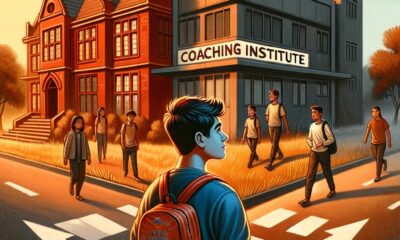

Addressing the Transition From Classrooms to Coaching: The Shifted Focus
-


Questioning the Trend of Lavish Farewells- #FarewellFiasco
-
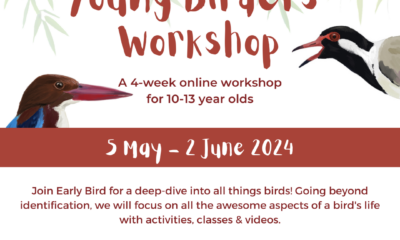

Young Birders’ Workshop Opens Registration for Children Aged 10-13 Years
-
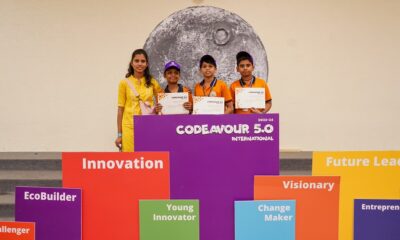

STEMpedia Successfully Completed Codeavour 5.0- India’s National Innovation Fest
-
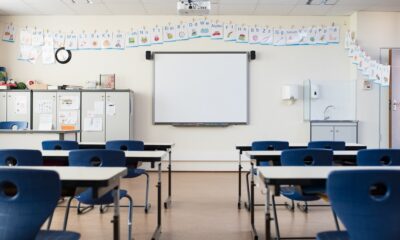

Reviving School Education: Countering the Coaching Centre Dominance
-


CBSE to Initiate Pilot for National Credit System in Grades 6, 9, and 11
-


The Role of Marketing in Education: Navigating the New Educational Landscape
-


From Overwhelmed to Empowered: Strengthening Educator Skills for Success
-
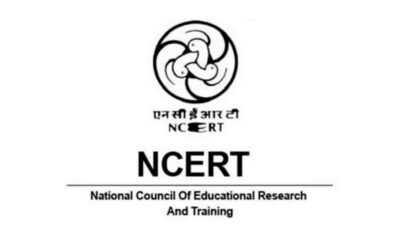

NCERT Introduces Bridge Month Programme for Class 6 Amid Textbook Transition
-


Indian Embassy Advocates for India-US Collaboration in Education Sector
Education
Addressing the Transition From Classrooms to Coaching: The Shifted Focus
Published
8 mins agoon
April 19, 2024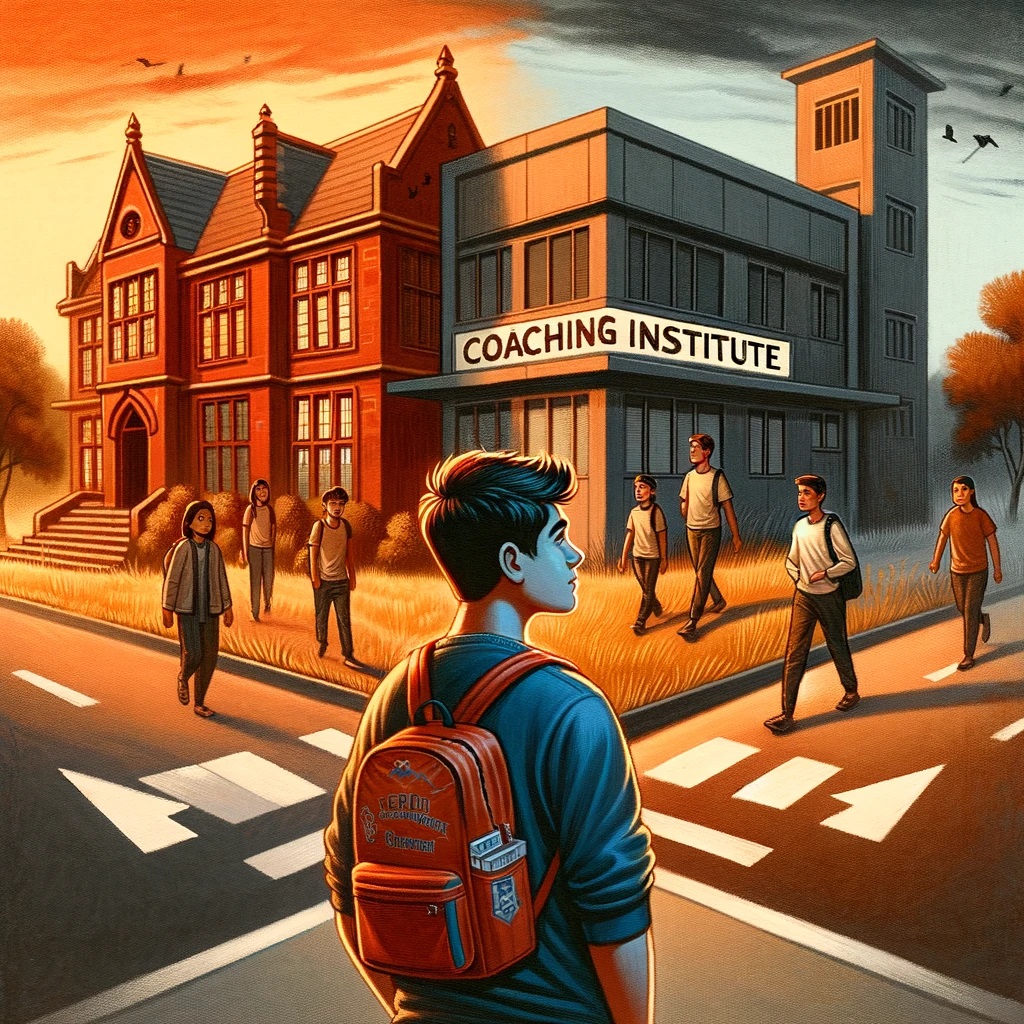
In the bustling academic corridors of Woody High, nestled amidst the verdant suburbs of a thriving city, the story of Vikram, a bright and ambitious student, begins to unfold. Vikram, like many of his peers, found himself at a crossroads as he stepped into the crucial years of 11th standard, caught between the traditional path of school education and the burgeoning trend of dummy admissions.Classrooms to Coaching: The Shifted Focus
The lure of coaching centres, promising a direct route to success in competitive exams, became increasingly irresistible. Vikram watched as one by one, his classmates traded the familiar setting of classrooms for the rigorous regimen of coaching institutes. The promise was simple: a focused preparation tailor-made for cracking entrance exams, seemingly a pragmatic choice in an increasingly competitive world.
However, this exodus from school to coaching centres revealed a deeper malaise within the education system. Schools, once vibrant communities of learning and growth, had slowly morphed into factories churning out board exam results. The holistic development of students, their readiness for the world beyond the gates of Woody High, seemed to have taken a backseat to the singular pursuit of academic scores.
Vikram’s decision to join the coaching bandwagon was met with a mix of hope and apprehension. The initial months were a blur of new concepts, relentless practice sessions, and the constant pressure to outperform. Yet, as the novelty wore off, Vikram found himself yearning for the missed debates in history class, the group projects in science, and the sense of belonging that came with being part of the school community.
The turning point came when Vikram, amidst his packed coaching schedule, volunteered for a community project. The experience was eye-opening, highlighting the gap between the rote learning at coaching centres and the practical knowledge and soft skills required in the real world. It dawned on Vikram that education was not just about clearing exams but about building a foundation for life.
As Woody High grappled with the dwindling numbers of students in its classrooms, it became evident that a change was needed. Schools had to evolve beyond their board-result orientation, integrating curriculum with real-world applications, fostering critical thinking, and preparing students for life’s myriad challenges.
The story, based on real incidents, raises the question that looms large, as we reflect on the narrative of #ClassroomOrCoaching: How can schools reclaim their role as sanctuaries of holistic education, ensuring they remain relevant and valuable in the lives of students like Vikram, not just as conduits to board results but as launchpads for their futures?
In a world where the race to the top often overlooks the essence of learning, can we afford to let coaching centres replace the rich, multifaceted experience of school education?
To read more on such trends that need to be called out and #un-trended, head to the April issue of our magazine here.
Education
Questioning the Trend of Lavish Farewells- #FarewellFiasco
Published
1 day agoon
April 18, 2024
Imagine your child is attending their Year 12 farewell. It is a night they have been looking forward to, marking the end of their school journey and the start of something new. The atmosphere is charged with excitement, laughter, and the bittersweet feeling of saying goodbye. As the evening wraps up, the buzz does not fade; it shifts to the streets. A group of friends, adrenaline still running high from the night’s celebrations, decide to extend the farewell with a car rally. Among them is Aarav, driving his family’s SUV, a vehicle too powerful for his inexperienced hands.
The city sleeps as the convoy of cars snakes its way through the deserted streets, the hum of engines breaking the night’s silence. Aarav, feeling the thrill of the chase, pushes the pedal down, the speedometer needle climbing higher and higher. His friends, in the car beside him, cheer him on, the competition heating up as they approach the ring road. It is a wide stretch, seemingly perfect for their race, away from the prying eyes of the night.
But in a heartbeat, the night turns tragic. Aarav loses control. The SUV, now a projectile, careers off the road, skidding and tumbling for what seems like an eternity. The aftermath is a scene of devastation. The vehicle, unrecognisable, lies in ruins, and silence once again claims the night, now heavy with the weight of consequences.
By the time the first light of dawn touches the sky, the police are at the scene, piecing together the events. The accident leaves one young soul lost to the night and another battling for life in hospital. Questions swirl around the circumstances that led to this moment. Was it the rush of speed, a momentary lapse in judgement, or something more? The community is left reeling, grappling with the reality of a celebration turned catastrophe.
As the investigation unfolds, the police sift through CCTV footage, trying to trace the sequence of events and the other vehicles involved. Speculations arise that the tragedy was the result of a high-speed race gone wrong. Amidst this, a family mourns the loss of their child, a farewell that was meant to be a celebration now a memory marred by loss and regret.
This story, though actual, has been anonymized to protect the identity and privacy of the student involved. It highlights a critical issue prevalent in communities worldwide: the trend of extravagant farewells escalating into dangerous activities, posing threats not only to the students but also to society as a whole.
As we reflect on this story, it compels us to ask: Is the pursuit of a grand goodbye worth the price of a life? How do we balance the celebration of milestones with the responsibility we owe to our children’s safety and to each other? This tale, inspired by true events, leaves us pondering the traditions we uphold and the lessons we impart to the young minds we are nurturing for the future.
To read more on such trends that need to be called out and #un-trended, head to the April issue of our magazine here.
Education
STEMpedia Successfully Completed Codeavour 5.0- India’s National Innovation Fest
Published
4 days agoon
April 15, 2024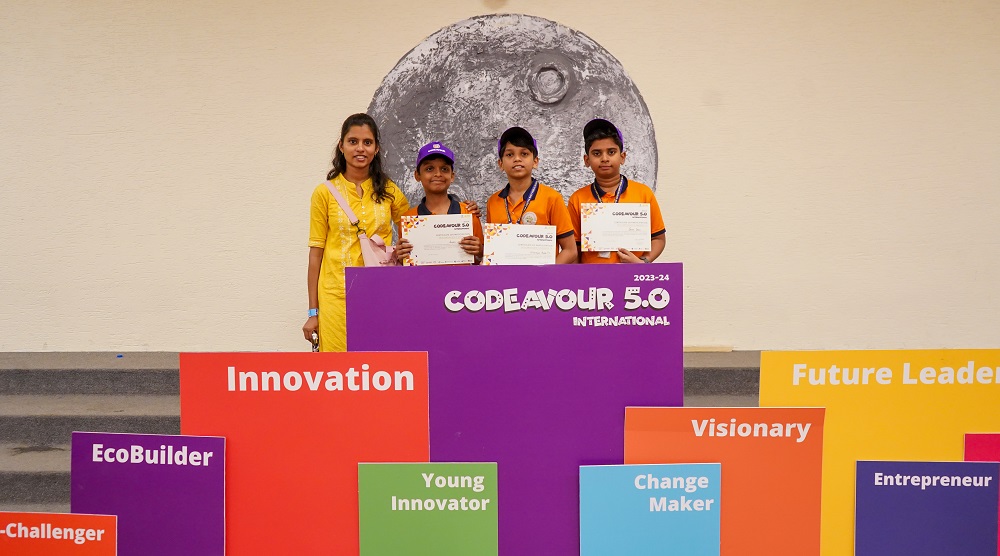
STEMpedia, in collaboration with ART PARK@IISc, India’s premier AI & Robotics Technology Park, established by the Indian Institute of Science in Bengaluru, successfully concluded the national level event of 2023’s biggest innovation fest, Codeavour 5.0 International. This year’s event, supported by leading organisations including AI Foundry, Startup India, and INDIAai, witnessed participation from 300,000 students across 70 countries, underscoring its global impact and the cumulative achievements of the competition to date.
The event, which also enjoyed backing from entities like AWS, NITI Aayog, and STEM.org, focused on fostering hands-on learning and innovation among next-gen participants. They were encouraged to create projects using PictoBlox that would contribute towards making the world a better place, aligning with the United Nations Sustainable Development Goals.
Dhrupal Shah, Director and CEO of STEMpedia, reflected on the journey and the fest’s objectives, saying, “Five years ago, we initiated Codeavour with the intention to empower young innovators and equip them with the necessary skills for the future workforce. This year, we are thrilled to announce that the top 20 winners will be awarded a trip to Mexico to participate in the FAB24 Event, accompanied by their mentors.”
The fest not only highlighted the technical skills of young minds but also provided them with a platform to showcase their creative solutions to real-world problems. In addition to the innovation and entrepreneurship track, participants competed in the AI-Robo City Challenge, demonstrating their prowess in applying AI and robotics to urban development challenges.
The panel discussion titled “AI EduFusion Conclave: Shaping Global School Education with AI, Robotics, and Policy Insights” was a highlight of the event, featuring experts like Dr. Sreejit Chakrabarthy from GEMS Dubai American Academy and Mr. Pankaj Verma from STEMpedia. The discussion provided insights into how governments and educational institutions are integrating AI and robotics into school curriculums to prepare students for future job markets.
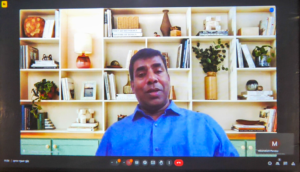
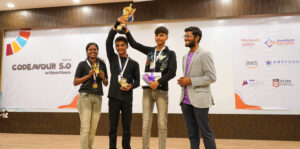
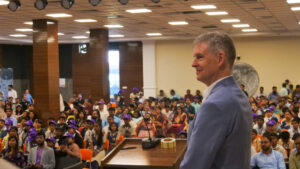
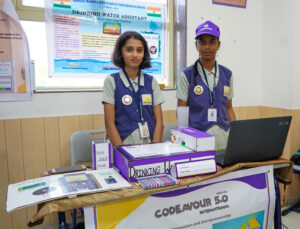
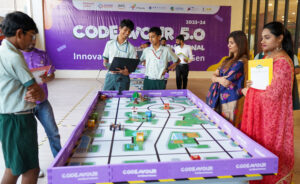
The event culminated with the National Innovation Awards, where participants presented projects that tackled environmental challenges and proposed sustainable solutions. Winners from the event will now proceed to the International Showdown in Dubai, hosted in partnership with Dubai American Academy.
As Codeavour 5.0 International wraps up, its success marks a significant step forward in integrating technology and education, inspiring the next generation of innovators and leaders to think critically and act creatively. The continued expansion of this fest promises to keep pushing the boundaries of what young students can achieve in the fields of AI and robotics.
Education
Reviving School Education: Countering the Coaching Centre Dominance
Published
1 week agoon
April 11, 2024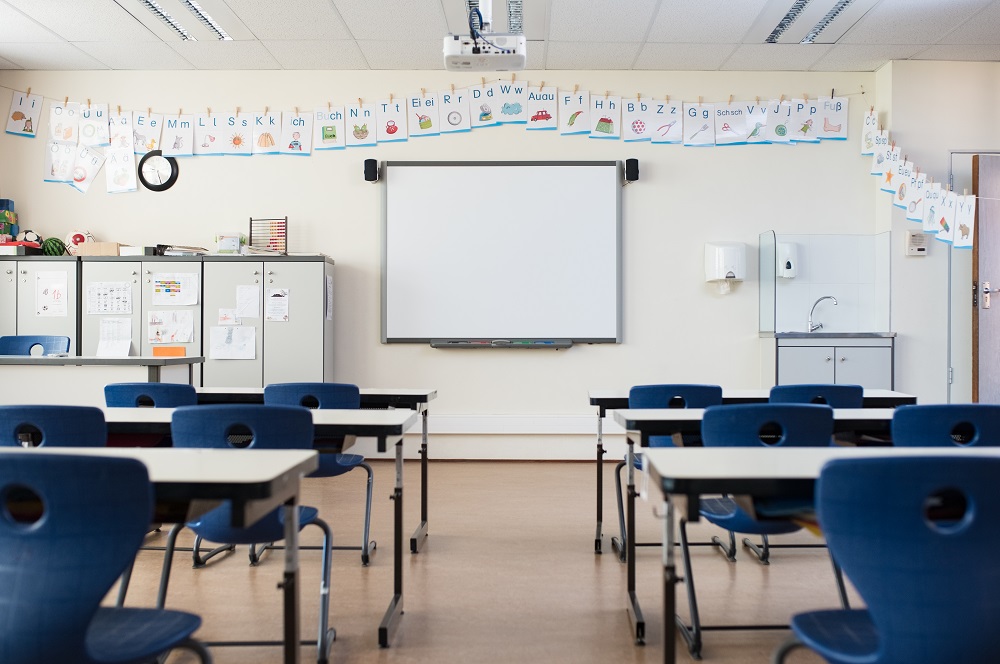
In recent years, a troubling trend has emerged within the educational landscape: the rise of “Dummy Admissions,” where students formally enrolled in schools are effectively abandoning the classroom in favour of coaching institutes. This phenomenon, particularly prevalent from the 11th standard onwards, sees students dropping out of school to prepare for competitive exams under the tutelage of coaching centres, which were originally intended to supplement, not supplant, school education.
The shift has been stark. Coaching, once a support system, has transformed into a parallel education industry, with some arguing it overshadows the broader developmental benefits of traditional schooling. This evolution poses a critical question: How can schools reclaim their role not just as preparatory grounds for board exams but as sanctuaries of holistic education that truly prepare students for life?
The Diminishing Role of Schools
The primary role of any educational institution is to foster an environment conducive to learning, curiosity, and personal growth. Schools are meant to be arenas where young minds receive a balanced education — academically, socially, and emotionally. However, the allure of scoring top marks in competitive exams has tilted the focus sharply towards rote learning and intensive exam preparation, often at the expense of holistic development.
The Coaching Conundrum
Coaching centres operate with a laser focus on results, primarily targeting competitive exams like the JEE, NEET, and others. This narrow approach prioritises immediate academic results over long-term learning and personal development. Students, driven by the pressure to excel in these high-stakes environments, often find themselves estranged from the broader educational experiences that school offers — experiences that are crucial in shaping well-rounded individuals capable of adapting to life’s varied challenges.
Reclaiming the Sanctuary of Education
For schools to regain their central place in the educational journey of students, they must evolve to meet the diverse needs of their students. Here are a few strategies that could help schools reassert their relevance:
- Integrated Curriculum: Schools could integrate aspects of competitive exam preparation into their regular curriculum, thus reducing the need for external coaching. This would allow students to prepare for exams without missing out on the broader educational offerings of the school.
- Focus on Skill Development: Beyond academic prowess, schools should enhance their focus on developing critical life skills such as critical thinking, problem-solving, creativity, and communication. These skills are crucial for success in professional and personal life and can make schooling more relevant.
- Counselling and Support Services: Enhanced counselling services can help students navigate their educational pathways and career choices effectively. Schools should equip students with the tools to make informed decisions about their futures.
- Experiential Learning: Schools must emphasise experiential and contextual learning, making education a more engaging, practical, and enjoyable experience. This can be achieved through project-based learning, internships, and real-world problem-solving scenarios.
- Parental Engagement: Engaging parents in the educational process and informing them about the importance of a balanced education can help shift the focus from mere exam preparation to overall development.
- Promotion of Arts and Sports: Encouraging participation in arts, sports, and other co-curricular activities can enrich students’ educational experience and support the development of a wide range of skills.
As the educational landscape continues to evolve, the challenge for schools is not just to prepare students for exams but to prepare them for life. In a world increasingly dominated by coaching centres, schools must innovate and broaden their educational offerings to ensure they remain valued not just as conduits to board results but as launchpads for the futures of students. It’s about striking a balance between academic rigor and holistic development, ensuring that schools remain the nurturing grounds for the leaders of tomorrow.
To read more on such trends that need to be called out and #un-trended, head to the April issue of our magazine here.
Education
CBSE to Initiate Pilot for National Credit System in Grades 6, 9, and 11
Published
1 week agoon
April 11, 2024
The Central Board of Secondary Education (CBSE) is set to launch the pilot for National Credit Framework for students in classes 6, 9, and 11, commencing in the 2024-25 academic session. This innovative step, aimed at fostering a seamless integration of school, higher, and vocational education, aligns with the National Education Policy (NEP) 2020’s vision for a holistic and flexible educational system.
Under the new scheme, students will have the opportunity to earn credits through a variety of learning avenues, including classroom teaching, laboratory work, projects, sports, performing arts, NCC, social work, vocational education, and experiential learning. These credits will be accumulated in the Academic Bank of Credit (ABC), linked to the student’s APAAR ID and DigiLocker, ensuring a cohesive and secure record of their academic journey.
The introduction of the National Credit Framework marks a significant shift towards competency and outcome-based education, aiming to bridge the gap in achieving learning outcomes. It encourages students to engage in additional courses, programs, or projects beyond the mandatory 40 credits, offering them the flexibility to tailor their educational experiences to their interests and career aspirations.
To facilitate the smooth implementation of this framework, the CBSE has developed draft guidelines, which have been refined through multiple workshops and received approval from the Union Ministry of Education. “To further test, refine, and assess their effectiveness in real-world contexts, a pilot implementation of these guidelines has been planned in schools affiliated with CBSE,” stated a letter from the CBSE to school principals.
Schools interested in participating in this groundbreaking pilot program have been invited to register their interest, marking a collaborative effort to enhance the educational offerings for students across the nation.
This initiative not only promises to transform the way students learn and earn qualifications but also paves the way for a more inclusive and flexible education system that caters to the diverse needs and aspirations of India’s youth. As the CBSE embarks on this ambitious journey, it sets the stage for a future where education is not just about accumulation of knowledge but the holistic development of every student.
(Source- PTI)
Education
The Role of Marketing in Education: Navigating the New Educational Landscape
Published
1 week agoon
April 10, 2024
In an increasingly competitive and interconnected world, the concept of marketing, once synonymous with businesses and industries, has found its place within the realm of education. As educational institutions vie for attention amidst a cacophony of voices, the need for strategic marketing and public relations (PR) efforts has become paramount. While the moral implications of marketing in education may spark debate, there is a compelling argument for incorporating marketing concepts into the educational curriculum, equipping students, teachers, and parents with the knowledge and skills to make informed decisions in an ever-evolving educational landscape.
Gone are the days when educational institutions relied solely on their academic prowess to attract students. In today’s digital age, where information is abundant and attention spans are fleeting, the ability to cut through the noise and communicate effectively has become a prerequisite for success. From crafting compelling brand narratives to leveraging social media platforms, educational institutions are embracing marketing strategies to enhance their visibility and appeal to prospective students and stakeholders.
However, the incorporation of marketing into the educational sector extends beyond mere promotional efforts. At its core, marketing is about understanding the needs and preferences of your target audience and delivering value accordingly. By teaching marketing concepts to students, educators empower them with critical thinking skills and an understanding of consumer behaviour, enabling them to navigate the complex marketplace of ideas and opportunities.
Moreover, marketing education goes beyond the classroom, extending its reach to teachers and parents alike. Educators, tasked with shaping the minds of future generations, can benefit from an understanding of marketing principles to engage students more effectively and create meaningful learning experiences. Similarly, parents, as key stakeholders in their children’s education, can make more informed decisions about school choice and educational resources by understanding the marketing strategies employed by educational institutions.
Critics may argue that the commodification of education undermines its intrinsic value and fosters a culture of competition at the expense of collaboration. While these concerns are valid, it is essential to recognize that marketing, when approached ethically and responsibly, can serve as a powerful tool for positive change. By promoting transparency, accountability, and accessibility, marketing can help bridge the gap between educational institutions and the communities they serve, fostering a culture of trust and mutual respect.
The integration of marketing concepts into the educational curriculum represents a paradigm shift in how we approach education in the digital age. By equipping students, teachers, and parents with the knowledge and skills to navigate the complexities of the modern educational landscape, we empower them to make informed decisions and drive meaningful change. As we embrace the potential of marketing in education, let us remain mindful of its ethical implications and strive to harness its power for the greater good.
Education
From Overwhelmed to Empowered: Strengthening Educator Skills for Success
Published
1 week agoon
April 10, 2024
In the corridors of any classroom, teachers stand as pillars of guidance, tasked not only with imparting knowledge but also with nurturing the holistic development of their students. However, the onerous burden of managing a multitude of responsibilities within resource-constrained environments poses a formidable challenge, underscoring the urgent need for enhanced teacher training programmes.
At the heart of this challenge lies the staggering class sizes prevalent in Indian schools. With classrooms often overflowing with 35 or more students, the task of catering to diverse learning needs while maintaining order can seem insurmountable. Effective classroom management techniques, tailored to accommodate large cohorts, are essential for fostering a conducive learning environment and mitigating stress for both teachers and students.
Moreover, the complexity of the modern educational landscape necessitates a multifaceted approach to teaching. From addressing academic gaps to promoting socio-emotional well-being, educators are expected to wear multiple hats, often without adequate training or support. Enhanced teacher training programmes must equip educators with the pedagogical tools and strategies necessary to navigate this intricate web of responsibilities effectively.
Central to the need for better teacher training is the imperative of managing workload and stress. The relentless demands of completing the curriculum, crafting assessments, and addressing administrative tasks can take a toll on educators’ mental health and overall well-being. By providing teachers with comprehensive training in stress management techniques, time management strategies, and self-care practices, we can empower them to strike a balance between professional duties and personal wellness.
Addressing the point of the topics that should be touched upon, these teacher training programmes must encompass modules on effective assessment practices and differentiated instruction. By equipping educators with the skills to design assessments that cater to diverse learning styles and abilities, we can ensure that every student receives the support they need to thrive academically. Similarly, training in differentiated instruction enables teachers to tailor their teaching methods to meet the individual needs of each student, fostering a more inclusive and equitable learning environment.
In addition to addressing immediate challenges, enhanced teacher training programmes must also focus on future-oriented skills and competencies. With rapid advancements in technology and pedagogy, educators must be prepared to adapt to changing educational landscapes and embrace innovative teaching methodologies. By providing training in digital literacy, collaborative learning, and project-based instruction, we can empower teachers to harness the potential of emerging technologies and create engaging learning experiences for their students.
Ultimately, the need for better teacher training is not merely a matter of professional development; it is a moral imperative. By investing in the growth and well-being of educators, we invest in the future of our nation. Because one teacher’s well-being will lead to the well being of those 35 other kids in a classroom.
Education
NCERT Introduces Bridge Month Programme for Class 6 Amid Textbook Transition
Published
1 week agoon
April 10, 2024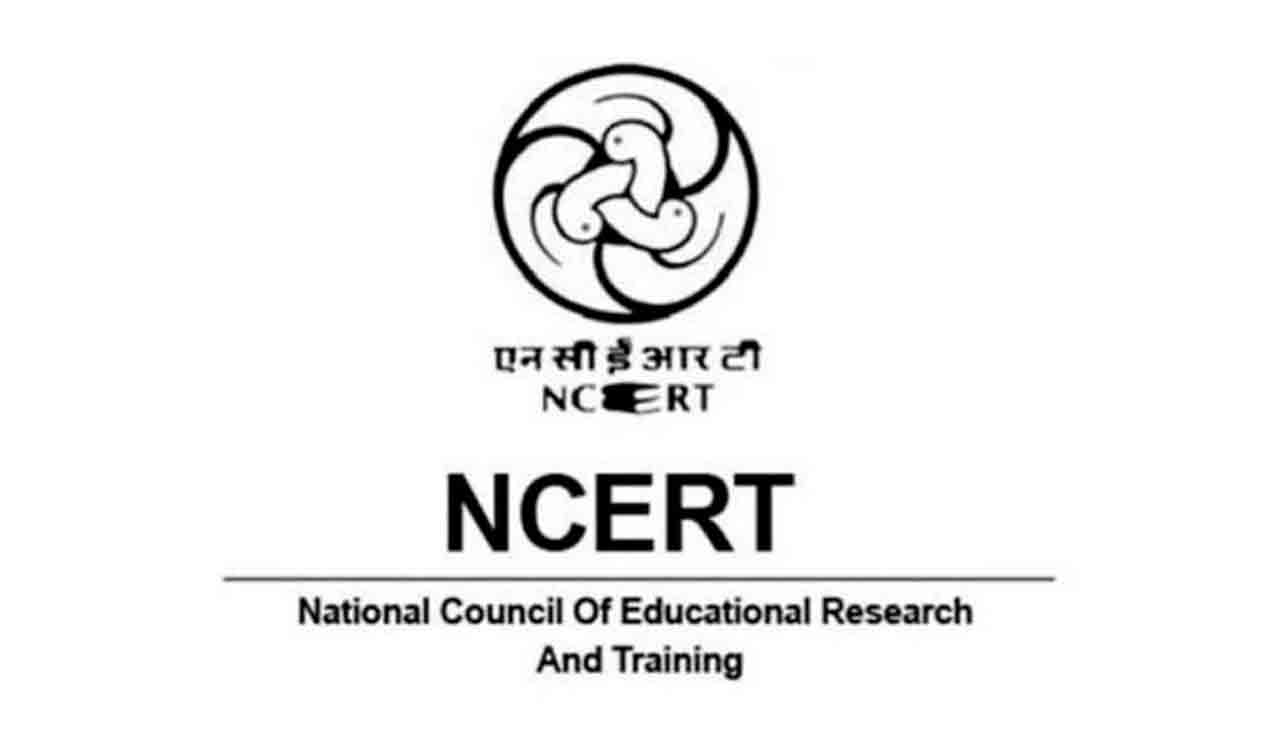
In a bid to revolutionize the educational landscape and foster a more dynamic learning environment, the National Council of Educational Research and Training (NCERT) has unveiled its Bridge Month Programme tailored for Class 6 students. This initiative marks a significant departure from conventional teaching methodologies, placing a heightened emphasis on interactive sessions and projects aimed at enhancing students’ overall skill set.
Aligned with the National Curriculum Framework for School Education (NCF-SE) and the recently implemented National Education Policy (NEP), NCERT’s Bridge Month Programme is poised to redefine the educational experience for both students and educators alike. By steering away from rote memorization towards a competency-based approach, the programme seeks to cultivate a deeper understanding of various subjects while nurturing critical thinking and problem-solving abilities.
The month-long bridge course is meticulously crafted to equip teachers with innovative pedagogical tools designed to engage students in enjoyable and enriching learning experiences. Through a curated blend of fun-based, play-based, and discovery-based activities, educators are empowered to guide students towards holistic development, transcending the boundaries of traditional classroom instruction.
Central to the programme’s ethos is the integration of vocational skills within the curriculum, commencing as early as Class 6. This forward-looking approach not only broadens students’ horizons but also fosters practical, real-world application of academic concepts. Additionally, the restructuring of the Grade 6 timetable allows for a dedicated immersion period, during which students can delve into a myriad of engaging activities spanning subjects like science, social studies, and vocational education.
With the impending release of new textbooks for Classes 3 and 6, NCERT’s phased approach ensures a seamless transition to the updated curriculum across all educational levels. As educators and students embark on this transformative journey, the overarching goal remains clear: to cultivate a generation of lifelong learners equipped with the skills and knowledge to thrive in an ever-evolving world.
As reported by India Today.
Education
Indian Embassy Advocates for India-US Collaboration in Education Sector
Published
2 weeks agoon
April 8, 2024
The Indian Embassy in Washington DC has underscored the significance of fostering collaboration between India and the United States in the realm of education. In a recent social media post on platform X, the embassy expressed contentment with the fruitful engagement it had with senior faculty members from esteemed universities in Washington DC.
During the interaction, the embassy stressed the substantial opportunities for bolstering knowledge and research partnerships between India and the US. This joint endeavour aims to bolster educational initiatives and advocate for the well-being of Indian students pursuing studies in the United States.
“Excellent interaction with senior faculty from prominent universities in Washington DC on India-US collaboration and opportunities for strengthening knowledge and research partnership and promote well-being of Indian students in the US,” stated the Indian Embassy in a post on X.
Moreover, amidst recent distressing incidents involving Indian nationals or individuals of Indian origin in the US, US Ambassador to India, Eric Garcetti, has addressed concerns regarding the safety of Indian students studying in the United States. Garcetti urged students to remain vigilant and employ appropriate safety precautions, while emphasizing the importance of staying connected with peers and utilizing campus safety resources to enhance awareness and preparedness.
In a recent interview with ANI, Garcetti acknowledged the distressing incidents involving Indian students, noting that such occurrences can statistically happen in a country of this scale. He reiterated the importance for students to remain vigilant and take necessary safety measures.
As per reports, five Indian students were reported dead in separate incidents in the first two months of 2024. (Source: ANI)
Education
Nurturing Healthy Behaviors: The Role of Schools in Shaping Health-Conscious Citizens
Published
2 weeks agoon
April 7, 2024
In the landscape of education, schools play a pivotal role far beyond the realms of academic learning; they are instrumental in moulding the future of our society by nurturing health-conscious citizens. This World Health Day, as we embrace the theme ‘My health, my right’, it’s crucial to spotlight the impact of school programs and policies in fostering healthy lifestyle choices among students. This endeavour not only aligns with students’ rights to education about health but also paves the way for a healthier, more informed generation.
In India, where diverse cultural backgrounds and socioeconomic statuses often dictate one’s access to health education and resources, schools have a unique opportunity to bridge these gaps. The Midday Meal Scheme, one of the largest school nutrition programs globally, serves as a sterling example. By providing nutritious meals to children in government and government-aided schools, it aims not just to combat hunger but to promote nutritional education and healthy eating habits among young learners. This initiative directly impacts the health and educational outcomes of approximately 115 million children across the country, showcasing the powerful role schools can play in shaping health-conscious behaviours.
Furthermore, the Government of India’s Rashtriya Kishor Swasthya Karyakram (RKSK) program emphasizes the importance of adolescent health, targeting the 253 million adolescents in the country. RKSK aims to integrate health education into schools, covering critical areas such as nutrition, mental health, and substance misuse, thereby ensuring that young individuals are equipped with the knowledge and skills to make informed health decisions.
However, the journey doesn’t end with national programs. Individual schools across India are taking innovative steps to encourage healthy behaviours. For instance, several institutions have introduced yoga and meditation into their daily routines, recognizing the importance of mental well-being alongside physical health. These practices not only improve students’ concentration and stress management skills but also instill a lifelong appreciation for holistic health practices.
Moreover, environmental health has become a growing concern, with schools incorporating lessons on sustainability and the importance of preserving our planet for future generations. Initiatives like setting up organic gardens, recycling projects, and awareness campaigns on water conservation are becoming increasingly common, fostering an eco-conscious mindset among students.
Despite these strides, challenges remain. Access to quality health education and resources is not uniform across India’s vast and varied landscape, with rural and underprivileged communities often at a disadvantage. Addressing these disparities requires concerted efforts from policymakers, educators, and communities to ensure that every child, irrespective of their background, has the right to health education and the opportunity to grow into a health-conscious citizen.
As we observe World Health Day, it’s clear that schools are much more than places of academic pursuit. They are crucial battlegrounds in the fight for a healthier future, where informed, conscious choices are not just encouraged but ingrained. By continuing to develop and implement comprehensive health education programs, schools can truly honor the theme ‘My health, my right’, turning it from a vision into a reality for every student across India.
Newsletter

Addressing the Transition From Classrooms to Coaching: The Shifted Focus

Questioning the Trend of Lavish Farewells- #FarewellFiasco

Young Birders’ Workshop Opens Registration for Children Aged 10-13 Years

STEMpedia Successfully Completed Codeavour 5.0- India’s National Innovation Fest

Reviving School Education: Countering the Coaching Centre Dominance
CBSE to Initiate Pilot for National Credit System in Grades 6, 9, and 11

The Role of Marketing in Education: Navigating the New Educational Landscape

From Overwhelmed to Empowered: Strengthening Educator Skills for Success

NCERT Introduces Bridge Month Programme for Class 6 Amid Textbook Transition

Indian Embassy Advocates for India-US Collaboration in Education Sector

Nurturing Healthy Behaviors: The Role of Schools in Shaping Health-Conscious Citizens

CBSE Updates Exam Structure for 11th & 12th Class; Concept-based Questions Now 50% of Weightage

Sharing the spotlight: When parent and child take board exams together

Rebalancing the Scales: The Urgent Call for Humanities in STEM-Dominated Curricula

Palette of Possibilities: Nurturing Creativity in Schools through Modern Art

Empowering Minds: The Journey of My Guide Inside with Christa Campsall

The Potential of an Entrepreneurial Development Programme for Primary School Students

FPSB India and IIM Bangalore Forge Strategic Partnership to Advance Financial Education

1 in 6 School-Age Children Face Cyberbullying: Calls for Immediate Action

GD Goenka Group To Establish 12 New Schools from April 2024

World Theatre Day: Let Theatre Arts Make Classroom’s Showtime Spectacular!

Lessons Beyond a Cricket Pitch: An IPL-Inspired School Curriculum

Post-pandemic: Embracing Well-being in India’s Schools with My Guide Inside

The Intersection of Happiness and Technology in Education

India-Bhutan Strengthen Ties: Focus on STEM Education

Life of My Father: Dr. Jagdish Gandhi, a Pioneer in Education

Mayo College Announces New Leadership

Post-pandemic: Embracing Well-being in India’s Schools with My Guide Inside

Empowering the Future: The Success of Beti Bachao Beti Padhao in Girls’ Education

Is Students’ Data in Safe Hands in a Digital World?

Central Government Sets New Framework for Coaching Centres

FPSB India and IIM Bangalore Forge Strategic Partnership to Advance Financial Education

Radio Broadcasting in Schools: Creating a Platform for Student Voices

Kerala Introduces ‘Water-Bell’ Initiative in Schools to Boost Hydration

India to recognise Farsi as a classical language under New Education Policy

Farewell to a Pioneer: Dr. Jagdish Gandhi’s Enduring Legacy in Education

Anticipating a Progressive Leap: The Education Sector’s Hopes for Union Budget 2024

Lexicon Schools Spark Innovation with STEAM Fest

The Need to Preserve Newspapers for Bias-Free Education

A Voice for All Ages: The Enduring Legacy of Ameen Sayani in Indian Education

Target Publications hosts workshop for grade 10th and 12th students of Snehasadan Shelter Homes and Reap NGO

Seth M. R. Jaipuria School launches CBSE School in Bhiwadi, Rajasthan

From 2025-26, Indian Students to Get Two Opportunities to Sit for Board Exams

The Rising Leaders’ Summit 2024: A Timeless Learning for Future Educational Leaders

International Women’s Day 2024: Are We Not Special?

ISRO Launches Young Scientist Programme 2024 for Budding Space Enthusiasts

Teach for India Invites Applications for its 2024 Fellowship Program

Ministry of Women and Child Development Unveils National Curriculum Framework for Early Childhood Care and Education

World Theatre Day: Let Theatre Arts Make Classroom’s Showtime Spectacular!

India Sets 6-Year Minimum Age for Class 1 Admissions Nationwide
SGEF2023 | Special Address by Rama Datt, Trustee, Maharaja Sawai Man Singh II Trust, Jaipur

ScooNews | After Movie | ScooNews Global Educators Fest 2023

Aftermovie | NIES2 UP Chapter | 21 Jan 2023

WEBINAR | Gamification in Education: How Digital Badges Can Boost Student Motivation and Engagement

ScooNews | WEBINAR| Importance of Physical Activity for Children at School | Plaeto

SCOONEWS | WEBINAR | WHY DIGITIZING YOUR SCHOOL IS A MUST | TEACHMINT

Keynote Address | Lakshyaraj Singh Mewar

Anurag Tripathi, Secretary, CBSE at SGEF2022

How schools can nurture every student’s genius

Aftermovie | SGEF2022 | Jaipur

Li Andersson | Minister of Education | Finland

Anurag Tripathi, Secretary, Central Board of Secondary Education (CBSE) discusses NEP2020

ScooNews | Early Ed Asia 2019 | Aftermovie
#PodarECEconf : Pursuing quality ECE

#CBSE Class XII #Results #Highlights

The interesting story of India’s educational system | Adhitya Iyer

A young scientist’s quest for clean water

The Danger of Silence: Clint Smith

National Digital Library of India is an initiative by HRD Ministry

Remembering Kalpana Chawla on her birthday!

Message from Sadhguru for Students!
Message from Sadhguru for Students!

The Untapped Genius That Could Change Science for the Better

Eddy Zhong: How school makes kids less intelligent TEDxYouth@Beacon

#TEDxCanberra : What if every child had access to music education…
Trending
-
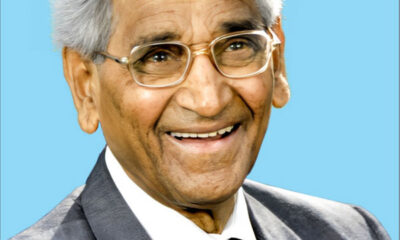
 Inspiration1 month ago
Inspiration1 month agoLife of My Father: Dr. Jagdish Gandhi, a Pioneer in Education
-
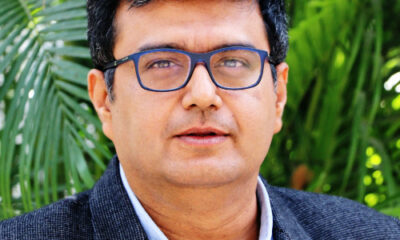
 Education3 months ago
Education3 months agoMayo College Announces New Leadership
-

 Education4 weeks ago
Education4 weeks agoPost-pandemic: Embracing Well-being in India’s Schools with My Guide Inside
-
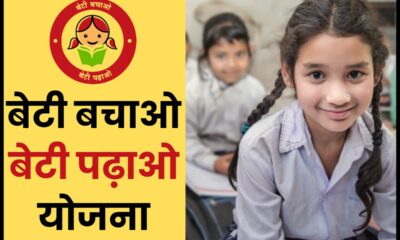
 Education3 months ago
Education3 months agoEmpowering the Future: The Success of Beti Bachao Beti Padhao in Girls’ Education
-

 Knowledge3 months ago
Knowledge3 months agoIs Students’ Data in Safe Hands in a Digital World?
-
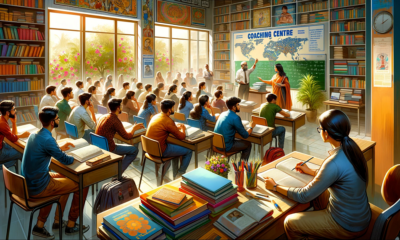
 Education3 months ago
Education3 months agoCentral Government Sets New Framework for Coaching Centres
-
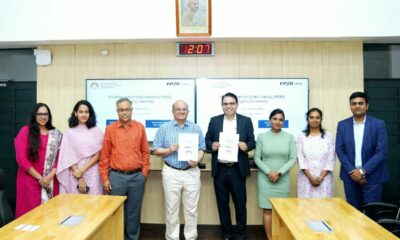
 Education3 weeks ago
Education3 weeks agoFPSB India and IIM Bangalore Forge Strategic Partnership to Advance Financial Education
-
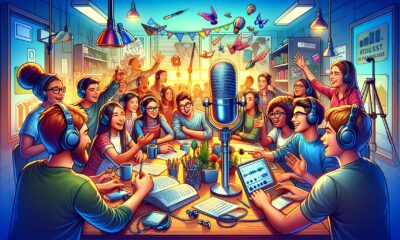
 Education2 months ago
Education2 months agoRadio Broadcasting in Schools: Creating a Platform for Student Voices
-

 Education2 months ago
Education2 months agoKerala Introduces ‘Water-Bell’ Initiative in Schools to Boost Hydration
-
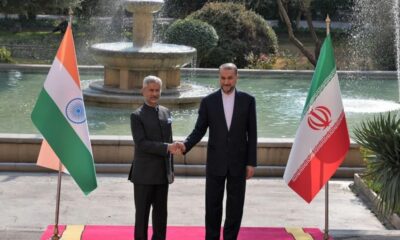
 Education3 months ago
Education3 months agoIndia to recognise Farsi as a classical language under New Education Policy



